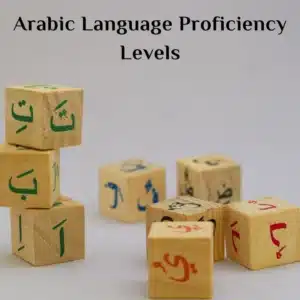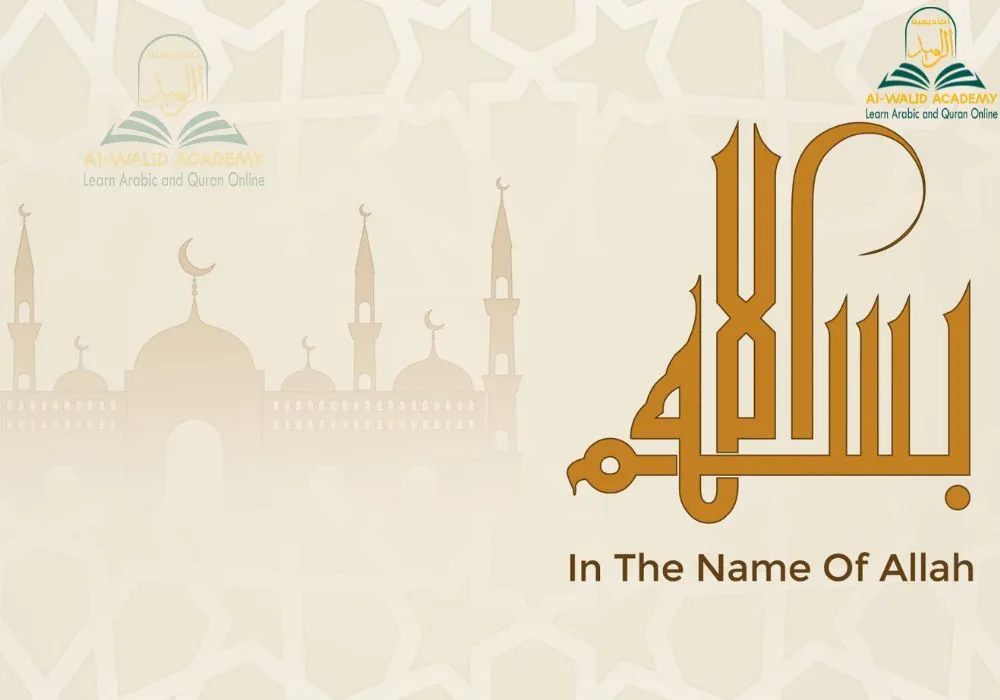Learning a new language is a complex process that varies from one individual to another and is influenced by a variety of factors. How long does it take to become fluent in Arabic, then? The response is different and shaped by several variables, such as the learner’s individual goals. This query provides an effortless passage into an expanded discussion of the difficulties associated with learning Arabic in this essay. Go ahead and read!
Why Learn Arabic
Learning Arabic is regarded as one of the hurdles non-native speakers face, yet there are several reasons why interest in studying it is increasing. It could be owing to its status as one of the oldest languages, with a 1,400-year history, or because it serves as the foundation for many others. However, there are 8 reasons why learning Arabic is important:
- Learning Arabic is a vital step because it is widely spoken, ranking sixth in the world as reported by Ethnologue, with over 400 million people spread over 22 countries.
- Consistency through history, Arabic has remained virtually consistent over the centuries. It is the foundation of several other languages and dialects, with around 30 different dialects.
- Arabic is the language used in the Quran, Islam’s holy book. Learning it provides an opportunity to comprehend Islam as well as the cultures and traditions of the Arab world.
- Improving Career Opportunities, Learning Arabic might be useful for business, especially if you operate in Arab nations or are involved in joint investments.
- Understanding Arab culture, in which each Arab country has a unique cultural character. Learning the language enhances your understanding of cultural variety and Islamic history.
- Developing a Variety of Linguistic Skills, in which learning Arabic improves your ability to read, write, listen, and speak. It also helps you communicate with native speakers more effectively, overcome language obstacles, and build cultural trust and understanding.
- Study Opportunities in Arabic-Speaking Nations Since Arabic is rich in literature, philosophy, science, and the arts, learning the language is crucial if you plan to study in a country where Arabic is the native tongue.
- Learning Arabic helps strengthen analytical skills and critical thinking, which opens up new options for creative thinking.To acquire fundamental language skills and establish a solid foundation in Arabic that will support your personal and professional development, enroll in Al Walid Academy’s Arabic Foundation Course.
Arabic Language Proficiency Levels

Evaluation of Arabic proficiency is done using the Common European Framework of Reference (CEFR). The Arabic language competency levels describe the stages of skill development that learners experience and evaluate their speaking, listening, reading, writing, and comprehension skills.
The general classification of Arabic proficiency stages:
A1 the Beginner stage
In Arabic, the A1 level emphasizes fundamental communication abilities. This includes:
- reading brief texts, introducing oneself, and employing simple language for everyday situations.
- Writing entails completing forms or sending clear messages.
- Speaking involves posing and responding to simple questions.
- Common vocabulary, present tense, and fundamental sentence patterns are all covered in the grammar.
A2 the Elementary stage
Learners at the A2 level are capable of handling simple conversations in real-life situations where they,
- can read brief texts, have regular discussions, and comprehend basic terms pertaining to everyday activities.
- are able to employ basic grammar, including the present, past, and future tenses, and compose brief notes and letters.
- are covered in vocabulary every day.
- begin utilizing simple conjunctions and prepositions.
B1 the intermediate stage
at this level, Learners
- may narrate events, voice opinions, explain plans, and create simple connected texts. Can clearly understand the major ideas of conversations on subjects they are familiar with, such as employment, education, and enjoyment.
- Are able to extract significant data from texts on known topics, read and understand them, and create related texts on their own interests.
- Speaking entails giving arguments for beliefs and recounting experiences. Writing comprises reports and essays with a simple format.
- Connections, complicated phrases, and additional tenses are added to the vocabulary and grammar.
B2 the upper intermediate stage
The B2 level in Arabic indicates a notable improvement in communication abilities. With some effort, where learners can:
- follow prolonged presentations and comprehend difficult materials and arguments, including technical topics.
- are able to identify between ideas and facts when reading and analyzing complex texts.
- Able to effectively explain a variety of subjects, make organized arguments, and have flexible, informal conversations.
- Can write entails creating thorough documents such as essays, and articles with nicely organized explanations and arguments.
- Mastery of grammar and vocabulary includes a wider vocabulary of abstract and technical phrases, complicated sentence patterns, and a variety of tenses.
C1 the Advanced stage
Learners possess an outstanding knowledge of Arabic at the C2 level. In which they
- Are able to comprehend almost everything they read and hear, including abstract and complicated literature.
- Participate in advanced conversations on difficult subjects while expressing themselves clearly, concisely, and naturally.
- Can write even in intricate materials like essays and reports, is precise, well-organized, and easy to understand.
- Have a large vocabulary, are proficient in all grammatical constructions, and can correctly utilize both technical and colloquial idioms.
- Are able to modify their words to suit various audiences and situations.
C2 the proficient stage
Learners with advanced skills at the C2 level of Arabic are specialized with many features, including:
- Are able to comprehend anything they read or hear, including intricate and abstract writings.
- write intelligibly and precisely, participate in complex conversations, and express themselves clearly.
- proficient in every grammatical structure, have a large vocabulary, and can accurately employ technical phrases and colloquial expressions.
- Are able to modify their words to fit various audiences and circumstances.
How long does it take to become fluent in Arabic?
Many learners of the Arabic language always ask several questions like how long does it take to become fluent in Arabic? The solution for determining the Time to Learn Arabic is based on numerous factors, including:
- Arabic learning speed is influenced by proficiency in other languages, with bilingual or multilingual individuals typically learning Arabic more quickly. Common linguistic elements and prior exposure to foreign languages can facilitate learning and reduce the time needed for Arabic proficiency.
- Effective methods of teaching that can significantly accelerate learning include immersion, scheduled classes, and linguistic interactions. Learning Arabic outside of the classroom can also be accelerated by doing things like reading, listening to audio or books, writing, speaking, seeing films, or visiting countries that speak Arabic.
- Strong motivation and unwavering commitment are necessary for quick Arabic learning. Passion is an important aspect in language achievement, with research indicating that it is the leading predictor of achievement as well as failure in language learning.
- Your perspective on learning a new language determines how long does it take to become fluent in Arabic. Approaching learning with a positive mindset can enhance passion, making it more enjoyable and effective.
- Language skills will grow far more quickly if you engage with native speakers or immerse yourself in an Arabic-speaking environment.
Al Walid Academy offers online Arabic conversation classes to help you improve your speaking abilities. These interactive courses, which are intended for learners of all ability levels, concentrate on useful conversational skills that will improve confidence and fluency. Sign up now to increase your chances of communicating globally and begin speaking Arabic fluently!
Duration Required to Learn Quranic Arabic

Arabic is the language of the Quran, and mastering it will take time depending on several factors, particularly if you are serious about learning the Quran. These factors include:
- Your previous language skills.
- The learning methods you apply.
- The amount of time you dedicate to learning.
- Your dedication to studying.
To effectively understand the Quran, you must first master the Arabic writing system. Here are some tips for learning the Quranic language:
- Learn and practice Arabic calligraphy.
- Focus on the common terms in the Quran, which account for half of its vocabulary.
- Learn Arabic grammar gradually over time.
- Begin reading the shorter Surahs of the Quran.
- Take Tajweed classes to learn how to read the Quran accurately using proper listening and pronunciation.
If you are passionate about learning Quranic Arabic and take it seriously, persistent effort will benefit you much. Learning time varies based on specific circumstances, but in general, it might take anywhere from 6 months to a year to achieve a good level of understanding of Quranic Arabic. It is worth mentioning in response to the question “How long does it take to become fluent in Arabic?” One of the most crucial ways to quicken the study of Arabic is to comprehend and learn the Quran. Al Walid Academy’s Quranic Arabic Course allows you to explore the richness of the Quran. This course is meant to help you master Quranic vocabulary and grammar while also providing an in-depth look at the Quranic language. Apply now.!
Read more about: How Long Does It Take To Learn Arabic Language
Different Features Of The Language That Make Arabic Uniquely Difficult
Arabic is a rich and complicated language with various characteristics that make it particularly difficult for learners. Here are several important features:
Arabic Script and Alphabet
- Arabic is written from right to left, which may be difficult for individuals used to left-to-right scripts.
- The language’s alphabet has 28 letters, and plenty of them change shape depending on their place in a word’s initial, medial, final, and isolated forms.
- Vowel sounds are frequently not stated in the script, therefore the target audience must deduce them based on context.
Pronunciation and Phonetics
Arabic features unique sounds, including:
- strong consonants (e.g.,”ص”,”ق”) and throaty sounds like “ع” and “غ”.
- Certain characters are pronounced differently depending on the surrounding letters, and non-native speakers may find it challenging to master them.
Word Order and Syntax
- The standard sentence structure is Verb-Subject-Object (VSO), however, word order can vary according to priority or context.
- Arabic syntax is extremely flexible, yet proficiency requires a thorough understanding of context and complexity.
Gender and Grammatical System
- The ends of nouns, pronouns, and adjectives are influenced by the grammatical cases in Arabic.
- The gender of nouns and adjectives whether masculine or feminine affects their agreement in form and meaning.
Dialectical variation
- Many dialects of Arabic differ significantly from Modern Standard Arabic, making cross-regional communication difficult.
- Some dialects may have radically different vocabulary, pronunciation, and even grammar rules, so students must decide which version of Arabic to focus on.
Arabic vocabulary
Arabic is significantly different from other Languages, where each new word must be taught from the beginning, which can take time
What are the top mistakes students make when learning Arabic
Before answering the query, how long does it take to become fluent in Arabic? You must be aware that various faults should be avoided when learning Arabic, including:
- Many students use transliterations or Romanized versions instead of learning the script completely, which can hinder their ability to read and write.
- Incorrect understanding of Gender, nouns are masculine or feminine, and adjectives, pronouns, and verbs must match the gender and number of the noun they describe. Students often have difficulty appropriately matching these words.
- Arabic verbs vary depending on the subject, tense, and emotion. Many students find it difficult to correctly conjugate verbs, particularly irregular verbs.
- Arabic words are usually written without short vowels or harakats, which can be confusing, especially for beginners. Ignoring these vowels might result in incorrect pronunciation and meaning.
- Arabic includes sounds not found in English, such as “Ayn” and “Ghayn”. Mispronouncing these sounds might cause misunderstandings.
- Most learners prefer reading and writing to speaking practice. Speaking Arabic fluently can be especially challenging if you do not engage in frequent conversation.
Would you like to learn Arabic and Quran online? We provide you with the opportunity to master the Arabic language and understand the Quran in a professional and easy manner through recognized online courses. With qualified teachers, you will be able to acquire Arabic grammar, accurate recitation, and gain a thorough understanding of the Quran. Don’t pass up this opportunity to improve your linguistic and religious skills in a short period. Join today!
Tips for Efficient Arabic Language Learning

Some essential tips might help you study Arabic more effectively and steadily develop your skills, such as:
- Clearly define your goals and list the reasons you wish to learn Arabic, such as travel, employment, culture, or religion.
- Surround yourself with Arabic as podcasts, movies, TV shows.
- Speaking with native speakers of Arabic to improve your punctuation.
- Choose the suitable form of learning Arabic, which Learning Arabic divides into 3 main types, Classical, Modern Standard Arabic, and Colloquial.
- Acquire the proper Arabic reading and writing skills to improve your memory retention.
- Practice Arabic daily to improve your skills according to schedule.
- Learning any new language can be tough, and when challenges develop, it is critical to have a tutor who can help you through the process and offer assistance.
For this purpose, you can join the Arabic Language Course at Al Walid Academy, which has a creative program and interactive lessons to help you develop your speaking, reading, and writing skills quickly and efficiently and you will make considerable progress in your Arabic studies with qualified teachers.
Maybe like: the Best Online Egyptian Arabic Course
Learn Arabic With Al-Walid Academy
To answer the question, how long does it take to become fluent in Arabic? You have to be aware of what you will learn. At Al-Walid Academy, we teach Arabic in a professional and effective manner. Whatever your starting point, our curriculum is designed to help you reach fluency. What to expect is as follows:
- Professional Learning is an organized method for learning Arabic that focuses on outcomes.
- Gain knowledge from experienced trainers who provide individualized instruction.
- Concentrate on developing your writing, speaking, and reading abilities.





